The Gulf of Mexico is comprised of many diverse and productive marine and coastal ecosystems that provide important resources and jobs for Gulf coast residents and the entire U.S.
Prior to the 2010 Deepwater Horizon accident the Gulf was already a system under stress, including a seasonal dead zone, overfishing and the loss of productive fisheries, degradation and loss of coastal wetlands and barrier islands, pollution and marine debris, and oil and gas drilling.
The Deepwater Horizon disaster caused extensive impacts on the Gulf's ecosystems, inhabitants, and economies. The health of the Gulf is inextricably intertwined with the quality of life for those who live in the Gulf coast states. It is critical that we understand the impact of the accident on the Gulf so that we can support restoration efforts and inform response to future accidents in the Gulf and ocean ecosystems around the world.
Photo credits:
Blue Marble image (cropped) from July 2012 by the Suomi NPP Earth-observing research satellite. Credit: NASA/NOAA/GSFC/Suomi NPP/VIIRS/Norman Kuring.
Sunset on the Gulf. Serenity courtesy of Ron Wooten on Flickr by permission.
Offshore Oil Complex courtesy of Ron Wooten on Flickr by permission.
Rigs at night (c) ECOGIG
Gulf of Mexico Beach, Marco Island FL courtesy of Adam Skowronski on Flickr (CC BY-ND 2.0)

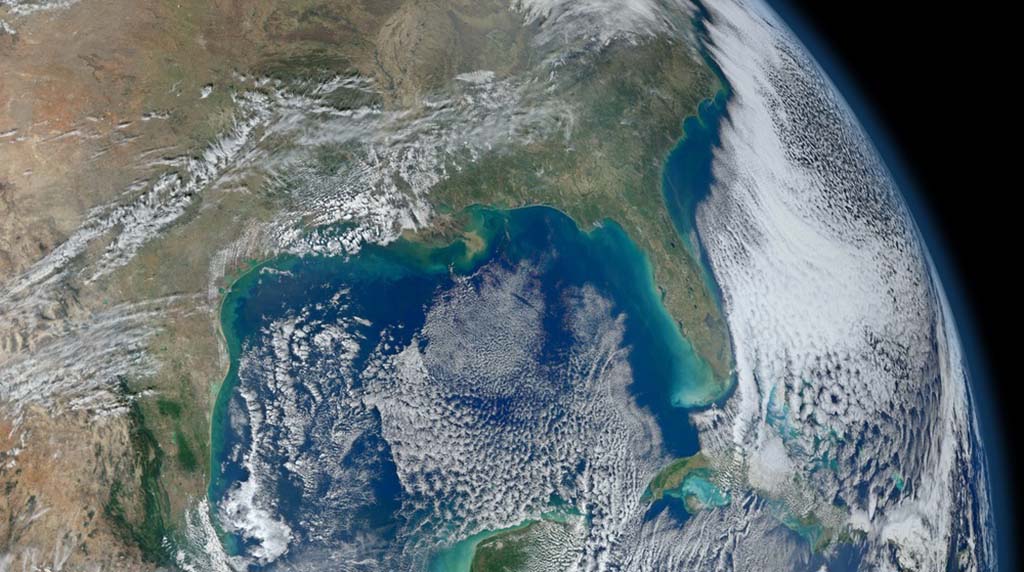
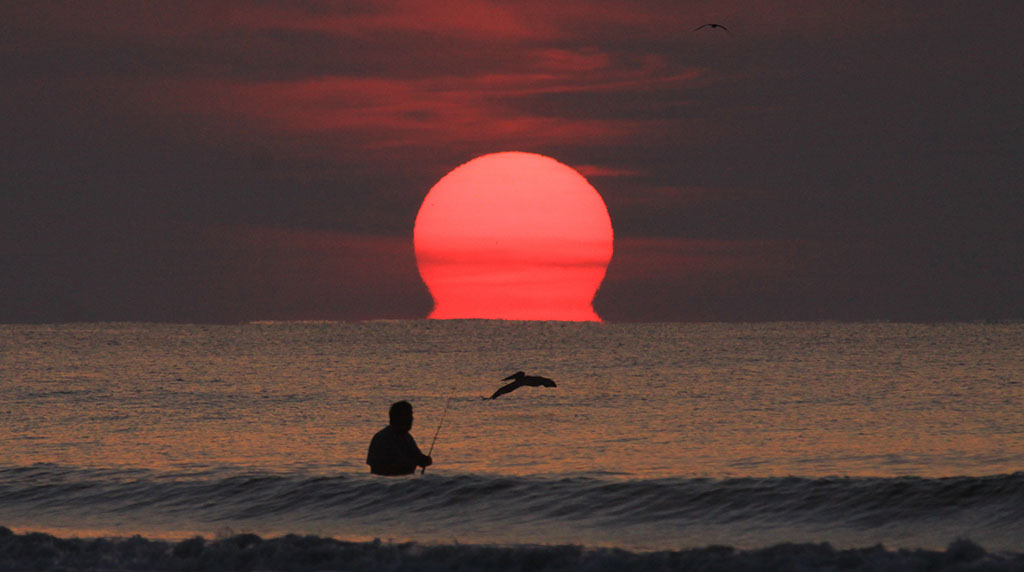
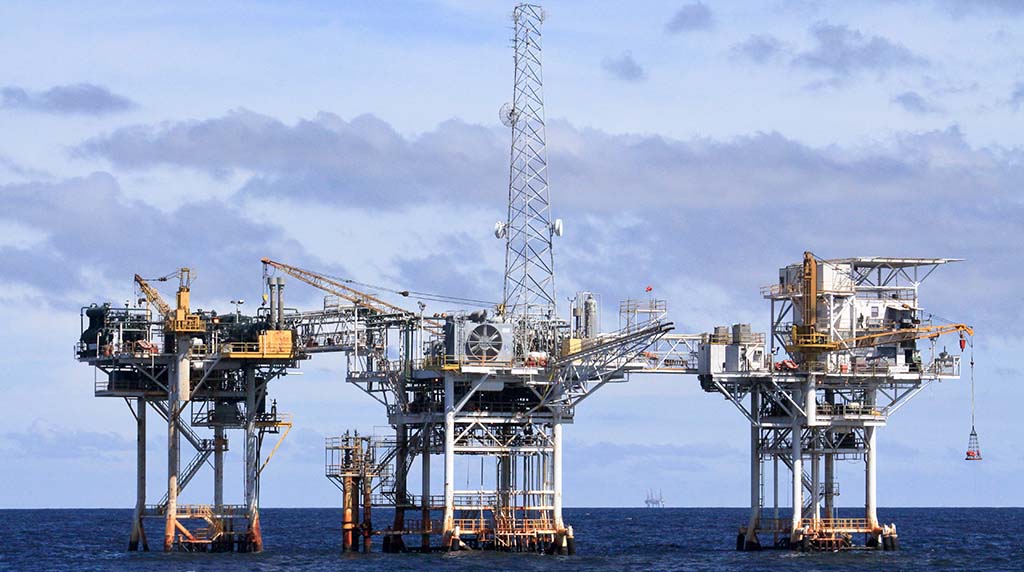
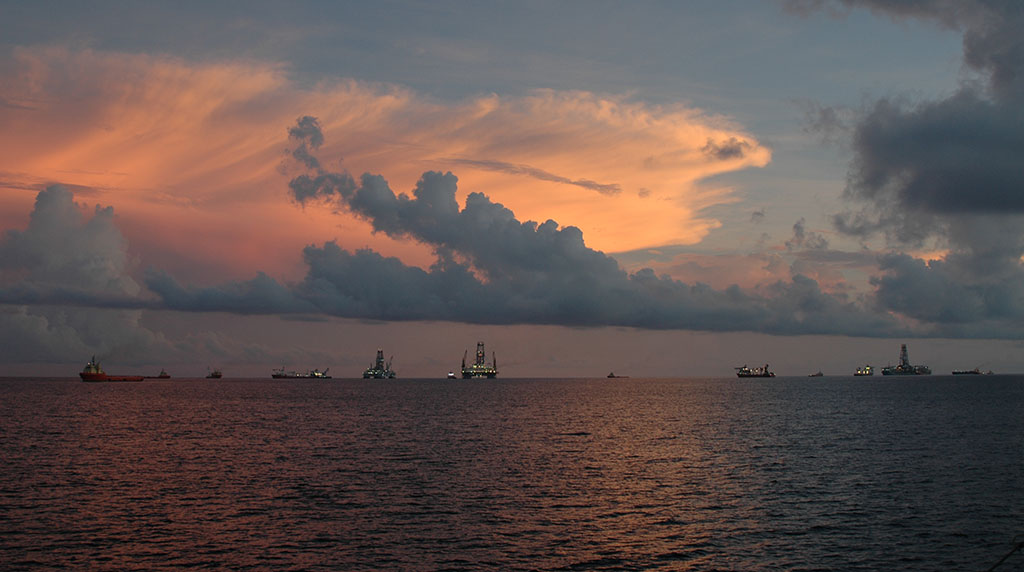
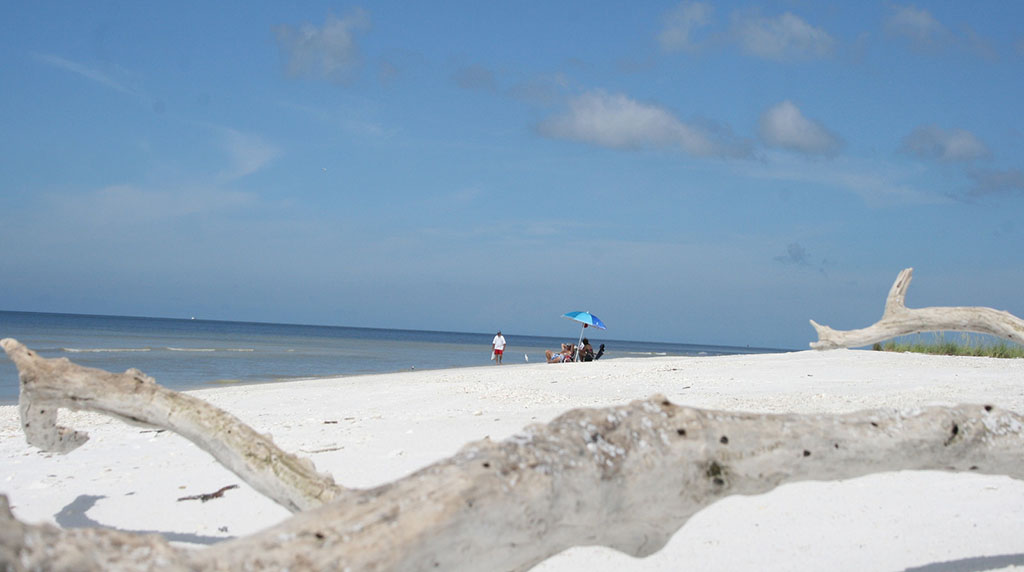


















 back to top
back to top